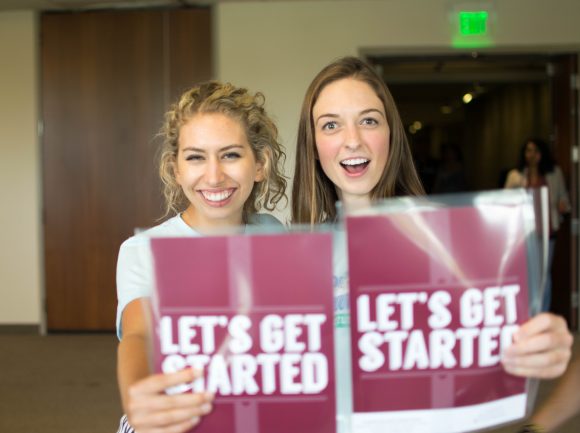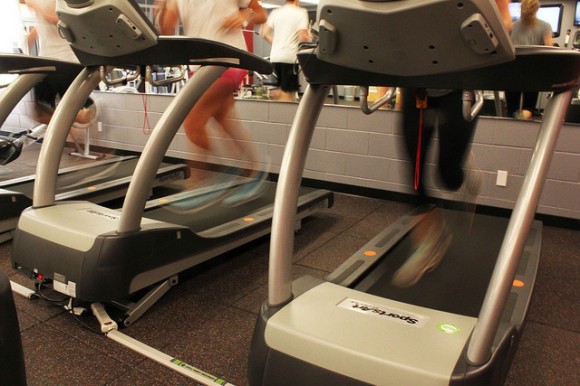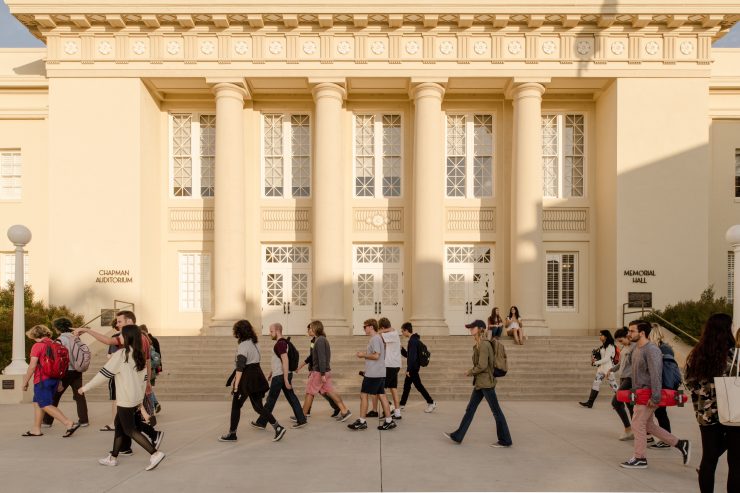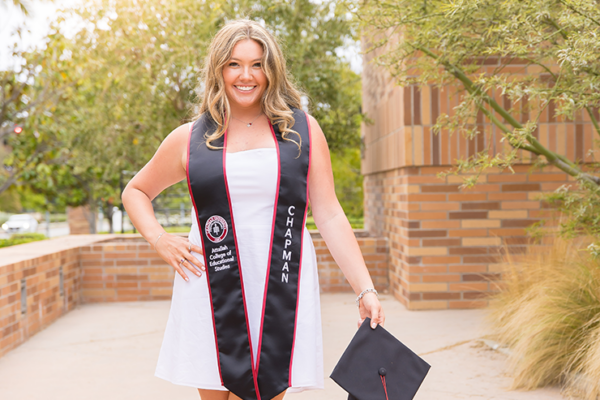The life of a first-year college student is a juggling act. And as the new semester looms, helpful advice abounds. Participate in campus life, but get enough sleep and eat well. Make friends, but don’t rush it. Focus on academics, but don’t panic if you hit a bump in the road.
Happily, there’s one overarching bit of wisdom that makes all the rest a little easier. Realize that you are going to change a lot this semester, says Jerry Price, Ph.D., dean of students and vice president for student affairs at Chapman University.
“Incoming new students anticipate the exciting new transition they’re going to experience, but they think of this transition in very external terms – new friends, new classes, new experiences, etc.,” Price says. “The real transition is internal – the immense growth that is occurring within them. Once they recognize and embrace this internal growth, the external elements of their transition take on a whole new meaning.”
With that thought in mind and the following practical strategies, you’ll start your college career with a strong first step, whether you’re at Chapman or elsewhere this fall semester.

Go to Orientation
“You can’t go back and redo your student orientation. So take the time to go to those programs and activities, meet people and get connected to the campus because it’s really important to the overall transition. Take advantage of the programming the resident advisors planned. They’re fun and you’re going to learn about the resources that we have on campus.”
Jamie Gutierrez, Assistant Director, Residence Life and First Year Experience at Chapman
College Is Not Like the Movies
“There are a lot of media and movies and things that portray the social norm that in college you’ll have a best-friend relationship with your roommate, or that always staying up late is normal. If that doesn’t happen, it doesn’t mean your college experience isn’t “correct.” The main thing to remember is that there is no correct way to experience college; it’s different for everyone.”
Sam Martinez, outreach coordinator for wellness promotion at Chapman
Be True to You
“Students often think everyone’s partying. Everyone is not partying. Don’t cave to peer pressure, and trust your instincts, trust your family values. Take your time in meeting friends and let friendships develop slowly.”
Dani Smith, Ph.D., director of PEER and Health Education at Chapman
Find the Campus Fitness Center …

“Exercise provides an excellent outlet from the stress of the first-year experience, and college in general. The benefits of exercise include improved mood and significant reduction in mild-to-moderate depression, improved sleep and improved immune system. Some research shows that weightlifting is more critical for weight regulation than aerobic exercise is. High-intensity interval training (HIIT) is another option for those on a tight time crunch.”
Eric Sternlicht, Ph.D., associate professor, Crean College of Health and Behavioral Sciences, who teaches on the science of obesity and serves as an advisor for the California Journal of Health Promotion.
… And Drink Water While You’re There
“Energy drinks mask the natural fatigue of your stress overload and may cause you to push too hard and ultimately crash or get sick — common each semester. Occasional use is fine, but dependency should be a warning sign to do a check-in with yourself. They are basically like a caffeine pill or strong espresso. The minimal added nutrients are for show and marketing purpose — don’t be tempted by advertising claims that are likely unsubstantiated.”
Eric Sternlicht, Ph.D.
Take a Mindfulness Break
“It’s not just for de-stressing or decreasing anxiety, which is very important. But it’s a practice in which you become more aware of what you are thinking or feeling at any given moment. That kind of thinking and awareness allows you to self-regulate, so that you don’t have so much of that imbalance. All the negative ruminations we have going on in our minds? This is one way that helps us to see it for what it is.”
Julie Artman, a certified mindfulness instructor who teaches mindfulness in First-Year Foundations, Religious Studies and Peace Studies.
Additionally, this fall Artman and other faculty will lead a seven-week workshop on mindfulness and resiliency at 7 p.m. on Wednesdays, beginning Aug. 28, in the John Biggs Conference Room (JBCR) in Henley Hall.
Or try this easy five-minute introduction to mindfulness offered by Sophie H. Janicke-Bowles, Ph.D., assistant professor in the School of Communication.
Above All, Remember, You’re Not Alone
“If you need peace and quiet, come to the Interfaith Center. Discover the labyrinth, sound healing and meditation. Everyone is struggling with something, so don’t be afraid to talk about whatever it is. Faculty and staff are here to help.”
The Rev. Nancy Brink, director of Church Relations at Chapman




